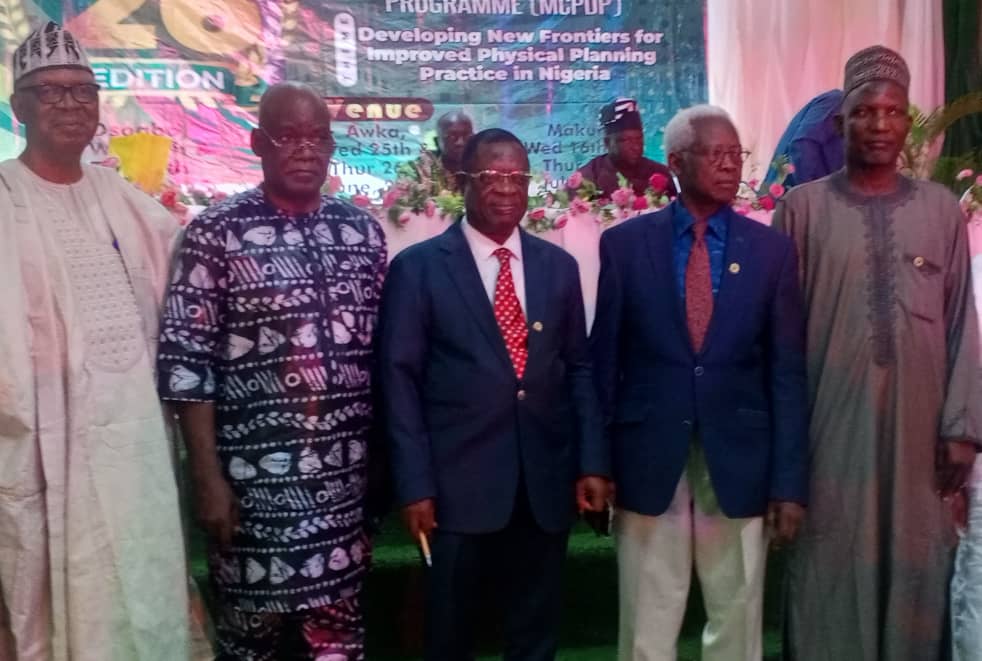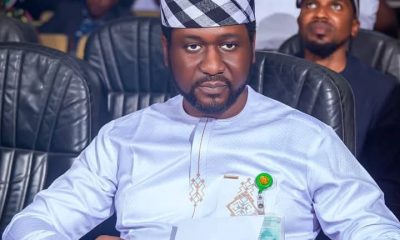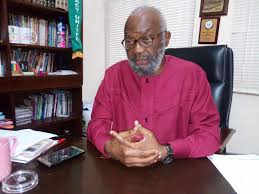Uncategorized
PenCom Recovers N25.45bn from Defaulting Employers in 11 Years

By Tony Obiechina, Abuja
The National Pension Commission (PenCom) has successfully recovered a total sum of successfully recovered a total of N25.45 billion in unremitted pension contributions from defaulting employers between the years 2012 and 2023.
This substantial amount encompasses the principal contributions of N12.
93 billion and penalties totalling N12. 52 billion in about 11 years.The disclosure was made by the Head of Corporate Communications of PenCom, Mr Ibrahim Buwai during the Finance Correspondents Association of Nigeria (FICAN) Annual General Meeting held in Abuja at the weekend.
Buwai highlighted the importance of the Pension Reforms Act, noting that the legislation mandates penalties for late remittances, accruing interest at a rate of 2% per month.
He emphasised the nearly equal distribution between recovered principal contributions and penalties, underscoring the comprehensive efforts to enforce compliance.
He said: “From the inception of these recovery agents’ programmes in 2012 to December 31, 2023, the principal contributions that were recovered were about N12.9 billion while the penalty was about N12.5 billion.
“So, you can see that it’s almost 50-50. All this is what has been recovered from employers and paid into RSAs. The good thing is that all this penalty and principal goes into the individual RSA account.
“Nobody takes a penny, not PFAs, not PenCom, nobody. All these money recovered were for RSA holders and it goes into RSA. What you can help us by way of employers is that it is not in their interests not to remit because it is cheaper to remit than not to remit.”
Addressing Compliance Challenges
PenCom’s recovery efforts are not without challenges. Buwai pointed out two major issues: employers failing to remit pension contributions and the lack of proper schedules accompanying remittances to Pension Fund Custodians (PFCs), which hampers the allocation of funds to RSA holders.
PenCom has taken proactive measures to combat these issues, including publicising a list of uncredited remittances and urging concerned parties to ensure compliance.
Buwai said, “We have the issue of employers not remitting. The second issue is that employers remitted but if there is no company schedule that shows the employers that these monies belong to Pension Fund Custodians (PFCs), they cannot apportion to RSA holders.
“We are not happy and that is why in 2023, we put out a statement on it and on our website, we have a long list of remittances that we saw were uncredited, calling on the people concerned to come forward and make sure the remittances are done.”
Ensuring Pension Fund Safety
Reiterating PenCom’s commitment to the safety of pension funds, Buwai assured that the regulatory body maintains strict guidelines to safeguard pension assets. These guidelines are meticulously designed to protect pension funds against potential investment risks.
He said:, “We are not wavering, we have not made it lax or easy. All those stringent guidelines that were thoroughly outlined so that pension funds might be protected in the event that these investment instruments might be available – those stringent requirements remain.
“All we know is that if the pension funds are available, pension funds managers will review and take their decisions.
“I have to also clarify that PenCom does not partake in investment issues on the pension funds.
“All we do as regulators is that we set out general guidelines as contained in our investment regulations.”
The diligent efforts of PenCom to recover unremitted pension contributions reflect its unwavering commitment to protecting employees’ retirement savings and ensuring employers adhere to regulatory obligations.
Uncategorized
Controversial Oil Wells: Akpabio’s Outburst Reckless – Philip Obin

By Mike Odiakose, Abuja
Special Adviser to the Governor of Cross River State on Digital Economy and Technical Assistant on New Media to former Vice President Yemi Osinbajo, Philip Obin, has described the recent public outburst by Senate President Godswill Akpabio is not only unfortunate, but also unprecedentedly inciteful.
Obin said in his social media handle that such utterances, coming from the nation’s number three citizen, carry the dangerous potential of igniting tension—even outright violence—between two sister states, Cross River and Akwa Ibom. “This is reckless and deeply disappointing.”For historical context, Cross River State is one of Nigeria’s oldest federating units, created in 1967 (originally as South-Eastern State) and renamed Cross River in 1976. “Akwa Ibom State, on the other hand, was carved out of Cross River State on September 23, 1987, by the Ibrahim Babangida-led military government. “As such, Akwa Ibom is not only our geographical neighbour but also our “younger sister” in both administrative and historical terms.”It is ironic, then, that Cross River—a state that gave birth to Akwa Ibom—has suffered the loss of 76 offshore oil wells to this younger sibling under highly controversial circumstances. “These oil wells were once a vital source of revenue and development for Cross River, contributing significantly to its federal allocations before their loss. Since the 2012 Supreme Court ruling, Cross River’s allocation dropped by over 40%, plunging the state deeper into economic hardship.”In spite of the economic hardship caused by the loss of the 76 oil wells—an act many still believe was politically engineered to Cross River’s disadvantage—our people have chosen the path of peace. “Cross River has demonstrated maturity, restraint, and exceptional neighbourliness towards Akwa Ibom. “We have maintained friendship and extended the hand of brotherhood, even while pursuing justice through peaceful and legal means.”This is why it is deeply troubling to see both the Akwa Ibom State Government and the Senate President engage in coordinated attempts to silence any conversation around redress, using the Supreme Court ruling as a final seal to shut down dialogue. But justice is not always only a legal conclusion—it is also a moral one.”Yes, the court ruled in 2012, but the pain and sense of injustice remain fresh among Cross Riverians. The fact that we lost our maritime boundary due to a federal action (the ceding of Bakassi to Cameroon) does not justify the further economic punishment of our people. “A political solution remains the most honourable and sustainable path forward—one that acknowledges the complexity of the situation and respects the sacrifices of Cross River.”Let it be clear: calls for a review or political settlement are not acts of provocation; they are calls for equity. “Rather than dismiss these legitimate concerns with arrogance, leaders—especially at the national level—should promote dialogue and healing, not division and threats.”The hate and condescension in Senator Akpabio’s utterances will not intimidate us. They will only strengthen our resolve. “The people of Cross River may be peaceful, but we are not weak. We demand justice, and we will continue to pursue it—peacefully, lawfully, and fearlessly.”Uncategorized
Financial Scandal: Ebonyi Indigenes demand Sack of SSG Over Diversion of State Resources

… Give Governor Nwifuru 48 Hours Ultimatum
By Mike Odiakose, Abuja
Following a reported Court order ordering the interim forfeiture of alleged one billion naira (N1 billion) diverted by the Secretary to the Ebonyi State Government (SSG), Prof Grace Umezuruike, a governance and accountability platform, the Association of Ebonyi Indigenes Socio-Cultural in the Diaspora (AEISCID) on Tuesday demanded immediate sack of the state SSG by Governor Francis Nwifuru.
The Ebonyi group also condemned the state government’s posture the reported case.
At the weekend, an Uyo Division of the Federal High Court had ordered interim forfeiture of over N1 billion allegedly diverted by the Secretary to the Ebonyi State Government (SSG), Grace Umezurike, and her aide, Ngene Nwanna Onyeabor.
The judge, Maureen Onyetenu, granted the forfeiture order on 8 July, according to a court document obtained by a prominent online newspaper.
The court order followed an ex parte application filed by the Economic and Financial Crimes Commission (EFCC).
Reacting to the development, the Diaspora group wondered how such humongous corrupt practice happened in a state like “Ebonyi where abject poverty walk on the streets stark naked and it took a conscious social critic, Nwoba Chika Nwoba to petition the anti-graft agency before it acted and froze the said accounts with an order to conduct discreet investigations into the matter is not for us a very big issue.”
In a statement signed Tuesday by AEISCID President (Worldwide), Ambassador Pascal Oluchukwu, asked Governor Nwifuru to immediately drop his SSG within 48 hours for a thorough, discreet and unhindered probe by the anti-graft agency.
According to the group, cases of corruption has been more prevalent in the current leadership of the state under Governor Nwifuru- “arguably more than all the past administrations since the return of democracy combined.
“We ask: What else does the Governor who claims to be a lawyer need to understand that once a prima facie case has been established leading to the freezing of the said accounts by the anti-graft agency for a possible forfeiture of the diverted funds to the Federal Government, the SSG should have been asked to step aside immediately?
“This is a common ethical and standard practice that is well in accordance with the principles of transparency, accountability and probity in governance which would ensure that all allegations are substantiated without let or hindrance using the privileges and rights of powerful office she occupies and connections of some powerful people in government.
“We are thoroughly ashamed of the disposition of the State government towards this grave allegation that has very severe and negative consequences for the State and Ebonyians home and in the diaspora.
” This is why we ask Governor Nwifuru to immediately drop his SSG within 48 hours for a thorough, discreet and unhindered probe by the anti-graft agency. We further admonish the government to show cause by entering to be joined as a party in the suit before the Federal High Court so that in any event the loot is proven to be that of the State, the government can easily reclaim the funds and deploy same for the benefit of the common masses.
“Already, apart from the pervasive poverty biting the common Ebonyians that one could literally cut through with a knife, there are many projects started by this administration which are yet to receive the needed attention obviously due to the same grand-scale corruption that has been the order of the day that the said money can effectively be ploughed back into.”
The group, however, called on the EFCC to widen its nets to help Ebonyi people recover loots allegedly diverted by contractors within the last two years of the present administration and the past eight years of Umahi-led administration.
“AEISCID would like the EFCC officials and the people alleged to be involved in this heinous financial crime which has gone on in our dear State for over a decade to know that our eyes are consistently on them and we would follow through this matter till all the funds are not only recovered but those responsible for the alleged diversions are consequently brought to book.
“We are fully aware of the fact that Ebonyi cannot breathe because former Governor Umahi is still holding the State by the neck and his successor strongly by the balls.
“This is not only about Nwifuru’s government and its appointees who have allegedly been amassing wealth from the public coffers. It is certainly about a people and their collective destiny to save their State from shame and eventual doom!”
Uncategorized
Town Planners Task Benue Govt On Regional Devt, Master Plans

By David Torough, Abuja
The President, Nigerian Institute of Town Planners (NITP), Dr. Chime Ogbonna, has urged the Benue State Government to urgently undertake a comprehensive regional development plan and master plans to begin implementing long-overdue urban planning policies across the state.
He made the call on Wednesday in Makurdi during the opening ceremony of the 26th Mandatory Continuing Professional Development Programme (MCPDP), hosted by the NITP in conjunction with the Town Planners Registration Council of Nigeria (TOPREC).
Addressing town planning professionals from across the country, Dr. Ogbonna decried the glaring shortfall of town planners in Benue and the administrative confusion surrounding physical planning in the state.
“From what we saw during the town hall meeting, there’s a dangerous absence of coordinated planning,” he said. “The Benue State Government needs to develop and implement a regional plan for the entire state and establish master plans for all urban areas.”
He warned that without deliberate planning, even small settlements in Benue state, which are bound to grow into urban areas will culminate into chaotic development. “Planning is not just for Makurdi. Every settlement, no matter how small, deserves a guide for growth,” he emphasized.
Dr. Ogbonna also advocated for the full implementation of Nigeria’s 1992 Urban and Regional Planning Law, saying it is the only way to ensure equitable and sustainable development across Benue’s urban and rural areas.
In a keynote address delivered on behalf of the President of TOPREC, Isyaku Muhtar Kura, the council’s representative, Tpl Prof. Timothy Gyuse, emphasized the need for innovation in tackling emerging urban planning challenges.
He described the MCPDP not just as a statutory event but also a platform to equip planners with modern tools, strategies, and collaborative approaches for building resilient communities.
“This training must go beyond routine. It’s a call to prepare for a future where sustainable cities become the norm,” he said.
The program has been billed to take place this year in three venues namely: Osogbo, Awka, and Makurdi. Osogbo and Awka have already hosted the programme while Makurdi is now hosting the 3rd and final leg of the programme.
Declaring the event open, Governor Hyacinth Alia, represented by the Director-General of Benue Geographic Information Service (BenGIS), Prof. Daniel Amine, welcomed the dialogue and promised government action on the planners’ recommendations.
“If you don’t plan, you will plan to fail,” Prof. Amine asserted. “This workshop has raised critical issues. We will expect formal communication from your institute, and we shall present it to the governor for prompt action.”
Prof. Amine praised Governor Alia’s commitment to urban development, noting that three senior staff of the BenGIS are certified town planners.
However, he cautioned against unregulated construction in the state. “If we allow people to build wherever they want, one day you may not even be able to drive out of your home,” he warned.
Amine also challenged NITP and TOPREC to hold their members accountable, especially those who contribute to planning irregularities. “Your institute must be ready to sanction planners who cause confusion,” he added.
In his remarks, the chairman of the MCPDP planning committee, Dr. Osunsanmi Gbolabo, expressed gratitude to participants and reiterated the historical importance of the training.
He said the MCPDP, now in its 26th year, has evolved to meet the dynamic demands of the profession. “We are not just shaping spaces; we are shaping futures,” he said, highlighting new syndicate sessions and smart training methods introduced to enhance the learning experience.
Several other speakers took the stage, including Dr. Jesse Nor, NITP’s National Public Relations Secretary, emphasized that the MCPDP is a vital platform to sharpen skills and improve planning outcomes in Nigeria’s growing cities.
“For this year, Makurdi was chosen among the other three venues to host the program. The Makurdi venue is thus the last leg of the program for the year.
Indeed, the MCPDP is a gathering of city planners to explore new frontiers of knowledge, training, and skill development, and how all of these influence planning practice and with the overarching aim of developing our towns, regions and cities in a sustainable manner”, he stated.
A highlight of the event was a paper presented by by Dr Osunsanmi Ogbolabo, on behalf of Prof. Ayo Olajuyigbe, of the Federal University of Technology, Akure, who traced the origins of town planning from ancient civilizations to contemporary practices. He stressed the need for financial and political will to enforce master plans, pointing to widespread violations due to weak implementation and institutional gaps.
In another presentation, Tpl Patrick Nyame, on behalf of Dr. Daniel Adamu from Nasarawa State University, advocated for strategic synergy between governments, ministries, private sectors, and non-state actors.
“Collaboration is not weakness; it’s wisdom. Government alone cannot achieve the level of development we seek,” he said.
The MCPDP, which began with a town hall meeting on Tuesday, will run through Thursday, featuring further presentations and roundtable discussions aimed at addressing Nigeria’s growing planning concerns and generating policy-focused solutions for sustainable development.
| ReplyReply allForwardAdd reaction |





















